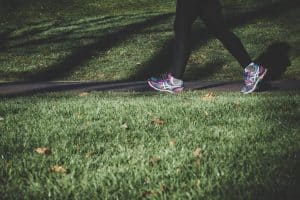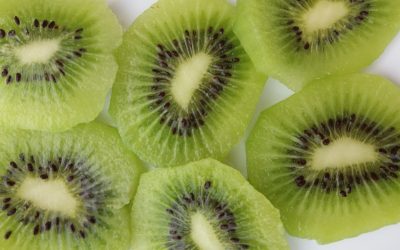Probiotics, eating more fibre and avoiding processed foods are top dietary tips to improve the good bugs in our gut.
Lifestyle Tips for Gut Health
Here are 5 non-food tips for gut health to help you develop and maintain good gut health through lifestyle as well.
1. Get a pet
The more varied our mix of bacteria is the more healthy we are. This is why it’s important to eat a variety of different foods rather than relying on the same things all the time.
If you live with a dog or cat then you’ll be exposed to their bacteria through stroking them, being licked and also the things they bring into the house from their feet, mud and mess. After all animals lick themselves clean most of the time, and dogs aren’t afraid to get dirty (cats not so much!). Pet owners tend to have a more varied mix of bug microbes.
2. Avoid antibacterial soaps
You don’t need antibacterial soaps and cleaners, we are too obsessed with removing bacteria. Most bacteria isn’t pathogenic (bad) but when we kill off 99.9% (as the bleach and cleaners proudly state) then all the harmless bacteria is killed off too. This means there is room for the bad bugs to jump in and start procreating.
Avoid this and just use warm soapy water to clean your hands and kitchen.
3. Avoid antibiotics
We know more about the over prescription of antibiotics now, but where possible avoid using them. We are lucky to live in a country where we have access to medicine that can resolve infections, but they are often over prescribed. If you do need antibiotics then consider a probiotic to replace the good microbes.
Use of antibiotics in farming is widespread and non-organic animals have high use of antibiotics, especially pig farming.
4. Relax
When we’re stressed our digestion slows down, and the gastric juices are reduced. This means food passes through to the gut in a partially digested state, which causes fermenting, gas and bloating.
Being stressed also changes the bacterial balance in your gut. Catecholamines, like adrenaline and dopamine, may increase the growth of bugs like Ecoli, and crowd out some of the more beneficial microbes.
Find a way to switch off from the stresses of your day through exercise, meditation, watching tv or reading.
5. Exercise
People who exercise more have a healthier mix of gut microbes. If you start exercising your gut health improves, and if you stop it can go more downhill.
So it’s within your control and the great thing is some positive effects on our gut microbes can be seen within hours of exercising.
If you have a dog you are also more likely to be out for a walk every day, linking with non-food tips for gut health Number 1!

IBS Nutritionist
Hi, I'm Anna Mapson, registered Nutritional Therapist.
I help people with IBS and SIBO get control of unpredictable gut symptoms to find long term relief from painful and embarrassing IBS without restrictive dieting.
I can help you to:
- understand your digestion better, so you recognise your triggers
- eat a well balanced diet, with tasty meals that are simple to prepare
- reintroduce your trigger foods so you can get back to enjoying food again
Find more about my 3 month 1:1 Gut Reset programme.
Supplements – Do I Need Them?
When I work with clients I often end up recommending some supplementation alongside dietary changes. These aren't essential, but may help speed up the way we address your symptoms. These could be vitamins minerals probiotics digestive aids You may be wondering why you...
Superfoods – The Benefits Of Kiwi Fruit
There is more to these little furry brown fruit than meets the eye. Kiwi fruit are packed with more vitamin C than an orange as well as other lesser known benefits for your gut health. Constipation reducing fruit - the power of kiwi Did you know eating two kiwi fruit...
Acne and Gut Health: What to eat for skin health
Acne and gut health are linked through our immune system, and we can influence this through diet. Acne is not just for teenagers, many people develop spots on the face, back and chest later in life. It's thought nearly 10% of the world experience acne at some point....




